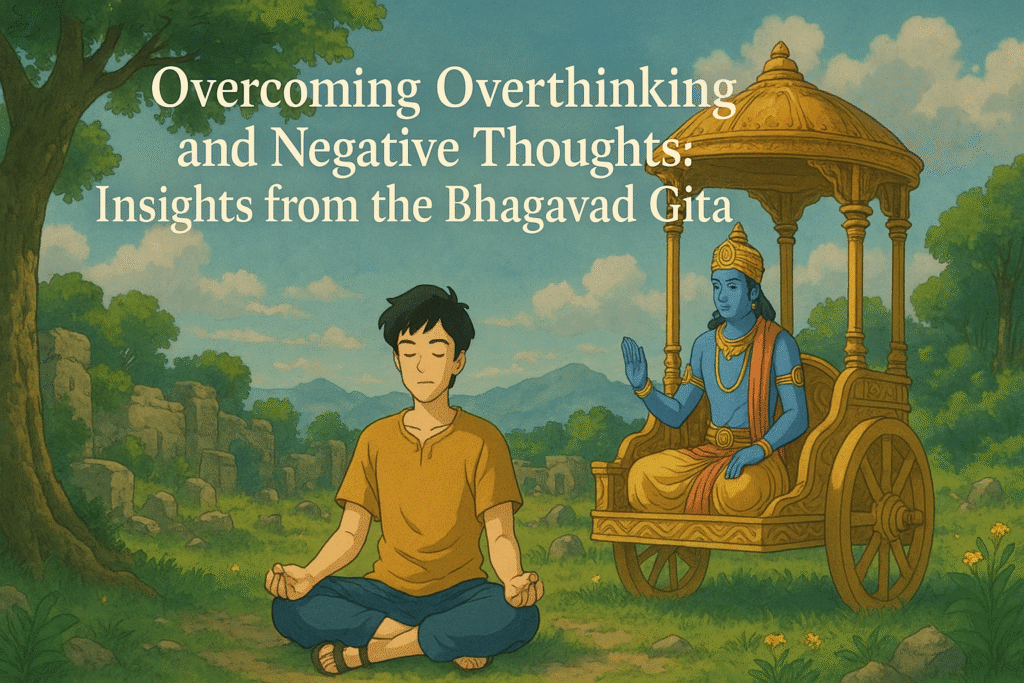
Overcoming Overthinking and Negative Thoughts: Insights from the Bhagavad Gita
Learn how timeless wisdom can help quiet your mind and elevate your perspective.
The Nature of Overthinking
Overthinking often arises from fear, anxiety, and past regrets. It leads us into loops of negative rumination that consume energy and distort reality. Modern life, with its constant stimuli and comparison, exacerbates this pattern.
Overthinking typically involves:
- 🔹 Dwelling excessively on problems without resolution
- 🔹 Replaying past events with guilt or shame
- 🔹 Projecting fear into uncertain futures
Bhagavad Gita’s Perspective
In the battlefield of Kurukshetra, Arjuna was paralyzed by doubt. Krishna’s response serves as a timeless remedy for mental unrest. The Gita emphasizes:
- 🧘 Self-Mastery: Control over mind and senses as the gateway to peace
- 🎯 Purpose: Focus on one’s duty (Dharma) rather than outcomes
- ⚖️ Detachment: Embrace balance amidst success and failure
“Perform your duty equipoised, abandoning all attachment to success or failure.” (Gita 2.48)
Simple Practices to Calm the Mind
- 🧘 Practice daily meditation (start with 5 minutes)
- 📿 Chant or listen to Gita shlokas
- 🌿 Spend time in nature and limit screen exposure
- 📝 Keep a journal for thought awareness and reframing
Consistency transforms temporary calm into a lasting foundation.
Negative Thought Frequency – Visual Breakdown
Mindfulness and reflection help reduce negative thoughts over time—data you can feel.
Frequently Asked Questions
Overthinking may not vanish entirely, but the Bhagavad Gita offers tools to reduce its power and frequency over time.
Yes! Its teachings on mental clarity, detachment, and purpose remain universally applicable even today.








Post Comment